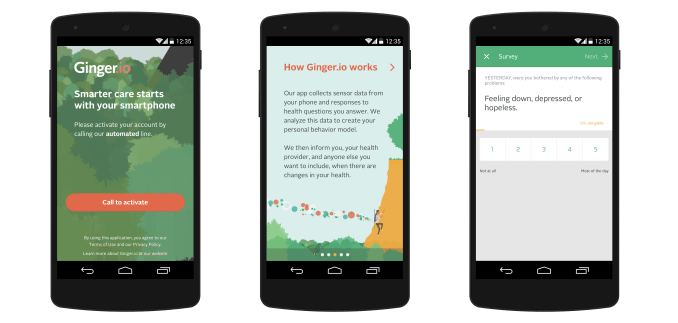Behavior health analytics startup Ginger.io has announced the launch of Utah SmartCare, a care management platform designed to help low-income Utah residents suffering from mental health issues.
Utah leads the nation in depression and suicide. Doctors prescribe antidepressants in the Beehive state at nearly twice the average rate in the U.S. Speculation as to whether that’s because of Mormon cultural pressure to be perfect, right-wing conservatism or simply the altitude aside, one Silicon Valley startup has decided to do something about it.
Utah SmartCare is a grant-funded project in association with Cambia Health Foundation. It aims to use technology to improve the quality and cost of healthcare for underserved populations in the state. The program will initially target 500 patients with co-morbid conditions; meaning they have both a mental and a physical health issue. Nearly 80 percent of these participants live at or below the poverty line.

Ginger.io is a spin-off from MIT Media Labs and was nurtured within TechStars Boston back in 2011. It uses predictive analytics from the way a patient interacts on their smartphone to detect warning signals in behavior. The software then alerts a healthcare provider that something is off.
Utah SmartCare partners with three local mental health authorities and 2 community health clinics in Utah. The program is a patch between office visits to help patients stay connected to their healthcare provider. “We’re already receiving great feedback from clients enrolled in the program,” said Brandon Hatch, executive director of Davis Behavioral Health, one of the local mental health authorities participating in the Utah SmartCare initiative. “This data will allow us to better assess how our clients are doing between appointments and catch any potential problems earlier, leading to better clinical outcomes.”
Ginger.io is working separately on projects with UC San Francisco, Partners HealthCare (Massachusetts General Hospital, Brigham and Women’s Hospital, and McLean Hospital), Duke University, UC Davis and University of Nebraska Medical Center.
